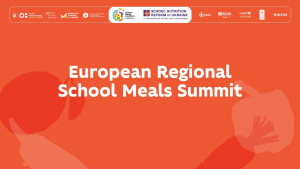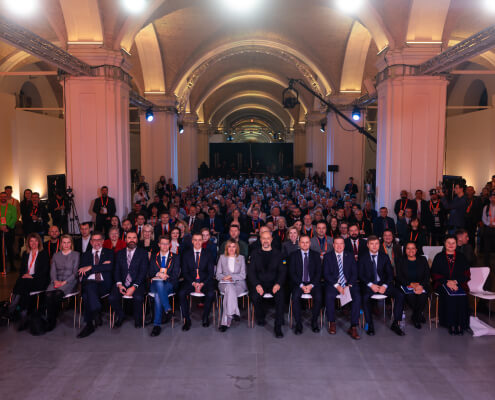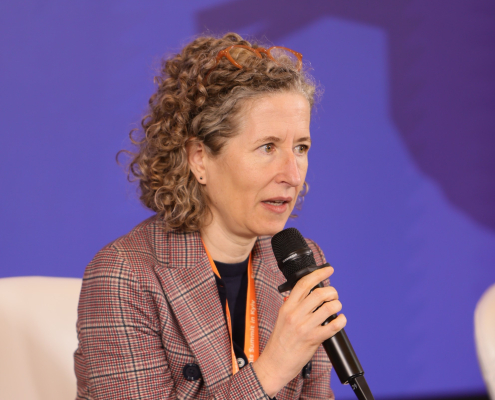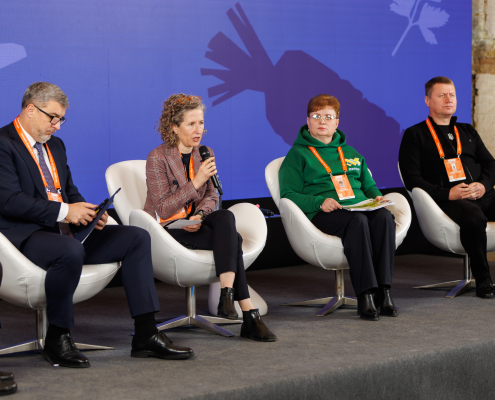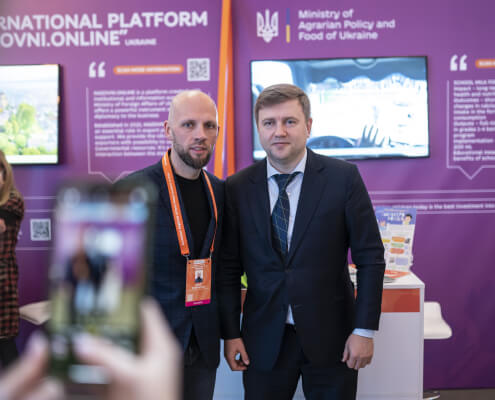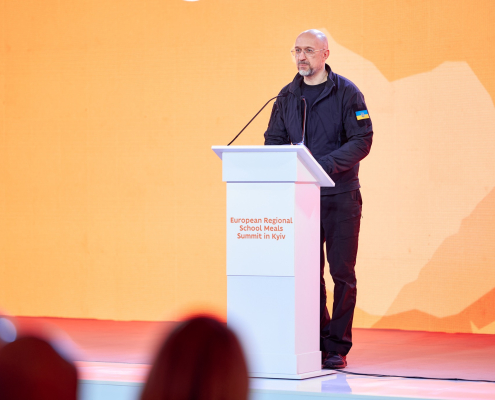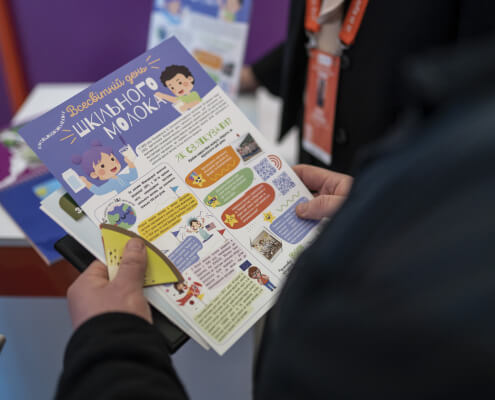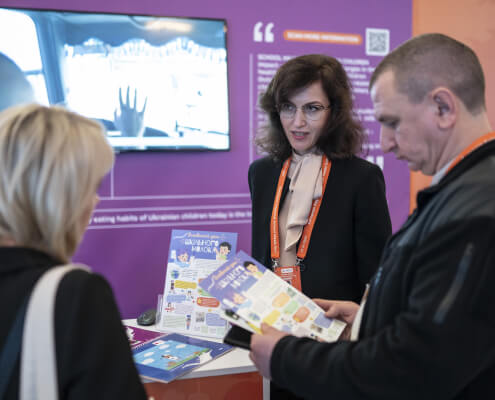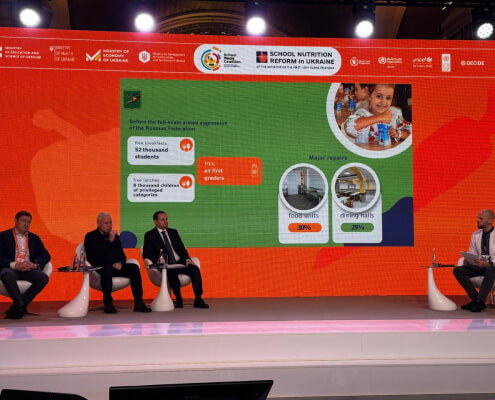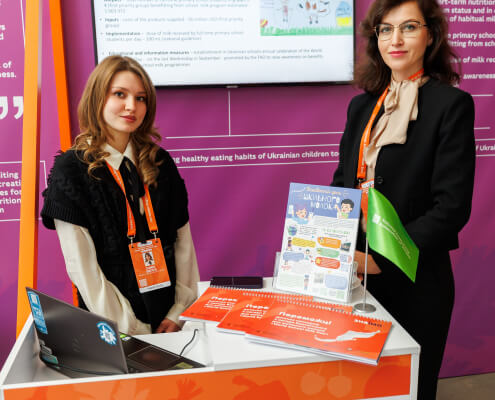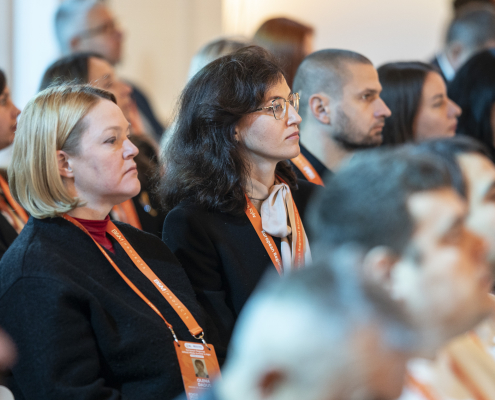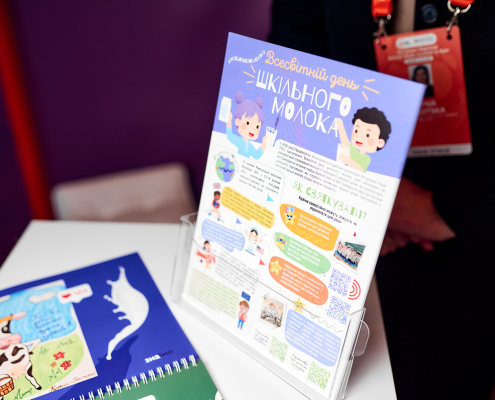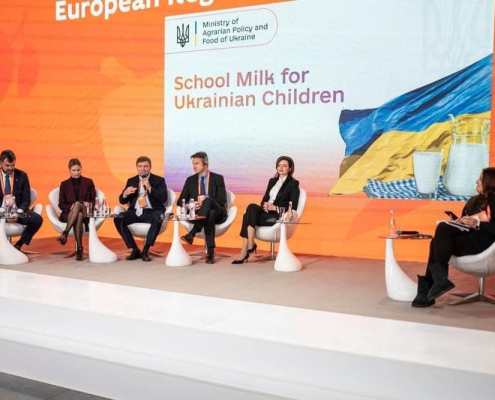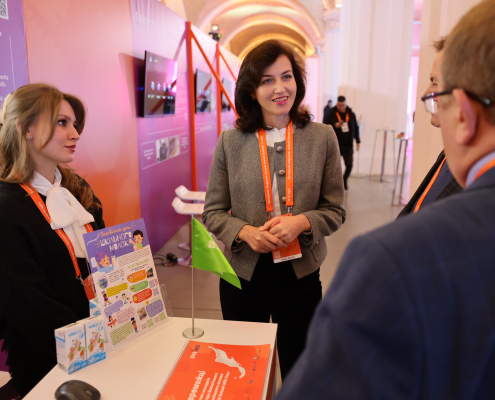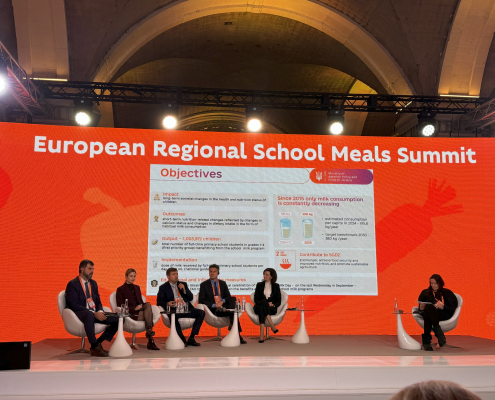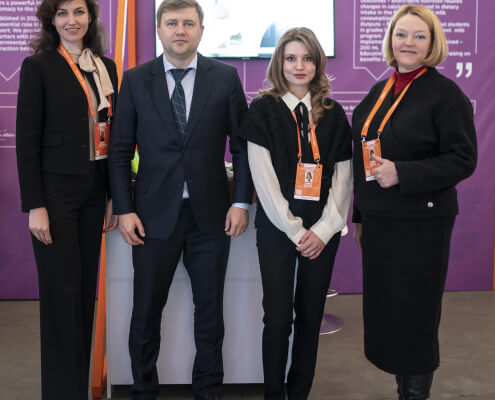Ukraine hosts the European Regional School Meals Summit for the first time On 12-13 November, the European Regional School Meals Summit was held in Kyiv, bringing together representatives of more than 20 international organizations, governments and embassies from more than 20 countries, including Norway, Switzerland, the European Union, Moldova and others. The event brought together about 500 participants from around the world to strengthen school meals programs not only in Europe but also beyond. Ukraine was represented at a high level: the Prime Minister, the First Lady, as well as ministers responsible for school nutrition reform – the Ministry of Education and Science, the Ministry of Health, the Ministry of Economy, the Ministry for Communities and Territories Development. The event was attended by heads of regional state administrations, representatives of local governments, international technical assistance projects, the media and the expert community. This summit was an important step on Ukraine’s path to integration into international school meals initiatives. In 2023, Ukraine joined the School Meals Coalition, which opened new opportunities for sharing experiences and implementing best practices. The ambitious goal of the Coalition is to ensure that every child has access to a healthy, nutritious lunch at school every day by 2030. It is also an important step in the development of school nutrition reform in Ukraine, initiated by First Lady Olena Zelenska in 2020. Ukraine’s participation in the summit provided an opportunity to demonstrate achievements in school nutrition reform and to get new ideas for further development. The summit was inaugurated by the Prime Minister of Ukraine Denys Shmyhal, who noted in his speech that children’s health is an absolute priority for Ukraine: «Starting this school year, free hot meals are available to all primary school students. This year, the government has allocated UAH 2 billion to the local level. Changes are underway in the procurement of food. We are focusing on local producers and thus stimulating farming and entrepreneurship». First Lady Olena Zelenska, Minister of Education and Science of Ukraine Oksen Lisovyi and Minister of Health of Ukraine Viktor Liashko presented the school nutrition reform in Ukraine to all foreign delegates. The First Lady recalled the key stages of the reform, which began before the war, and stressed the importance of adapting the program in wartime: «Food is a significant component of success in education and life. That is why, first of all, we brought together many different institutions: The Ministry of Health, the Ministry of Education and Science, the Ministry of Economy, representatives of NGOs, including nutrition experts, chefs, doctors, nutritionists, dietitians – and started acting, step by step», Olena Zelenska said. Minister of Education and Science of Ukraine Oksen Lisovyi presented four strategic goals of the school nutrition reform: strengthening the capacity of communities, modernizing the infrastructure of school canteens, developing human resources and communicating healthy eating. The summit was held on two stages – the main and regional – which allowed for a wide range of topics to be covered. Simon Troller, Deputy Head of Cooperation at the Embassy of Switzerland in Ukraine, spoke at the regional stage, outlining the areas of support for school nutrition reform within three Swiss technical assistance projects: decentralization of education, health, food safety and, in particular, milk quality, and promotion of organic food. During the second day of the Summit, Minister of Agrarian Policy and Food of Ukraine Vitalii Koval made a presentation on the main stage to introduce the School Milk program in Ukrainian schools. The Minister stressed that school meals program can make a direct contribution to the UN Sustainable Development Goals (SDGs). Through the introduction of school milk programs, Ukraine will be able to achieve SDG 2 – «End hunger, achieve food security, improve nutrition and promote sustainable agriculture». For example, the indicator for SDG 2 «Consumption of milk and dairy products per capita per year», with a target of 380 kg/year in 2030, has a projection of only 196 kg in 2024. The project is aimed at schoolchildren in grades 1-4, who will be able to develop healthy eating habits for the future by drinking milk on a daily basis. Vitaliі Koval told the summit participants that the School Milk program is available in 104 countries. And 210 million children in the world already have daily access to milk in schools and called on international partners to join this initiative in Ukraine. The summit featured an expo zone with about 40 projects from different regions of Ukraine, which demonstrated how school nutrition reform is being implemented on the ground. The Ministry of Agrarian Policy and Food of Ukraine presented the School Milk project at its own stand for all interested international and Ukrainian visitors. The Swiss-Ukrainian programme “Higher Value Added Trade from the Organic and Dairy Sector in Ukraine” (QFTP) implemented by the Research Institute of Organic Agriculture (FiBL, Switzerland) in partnership with SAFOSO AG (Switzerland), provided information and expert support to the Ministry of Agrarian Policy and Food in Ukraine in preparing a stand with a presentation of the School Milk project. This summit has become an important platform for identifying new strategies and policies in the field of school meals that will ensure that every child has a healthy diet every day and will contribute to the development of local economies and sustainable food systems. Thanks to the efforts of leaders from around the world, including European countries, school meals is becoming an important part of the global strategy to achieve the Sustainable Development Goals. Information Brief School Meals Coalition The School Meals Coalition is a global partnership of governments, international organizations, civil society, and the private sector dedicated to ensuring all children have access to healthy, nutritious, and sustainable meals in schools. The Coalition aims to expand school meal programmes, improve students’ health and academic performance, and support local economies by sourcing food from small-scale farmers. The Coalition also seeks to achieve the UN Sustainable Development Goals, particularly Goal 2 — Zero Hunger — by 2030. School Nutrition Reform in Ukraine School nutrition reform in Ukraine began in 2020 under the initiative of First Lady Olena Zelenska. Its primary goal is to provide students with balanced and nutritious meals while promoting a culture of healthy eating among children and their families. Key Aspects of the Reform: The reform aims to reduce the prevalence of non-communicable diseases among children, establish healthy eating habits, and ensure equal access to high-quality nutrition for students nationwide. For more details, follow the link.
